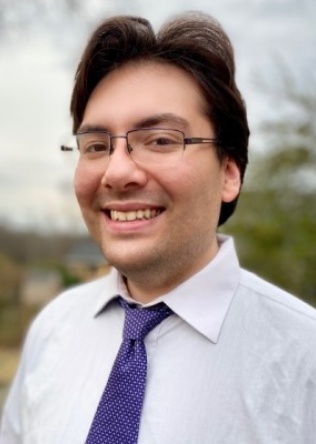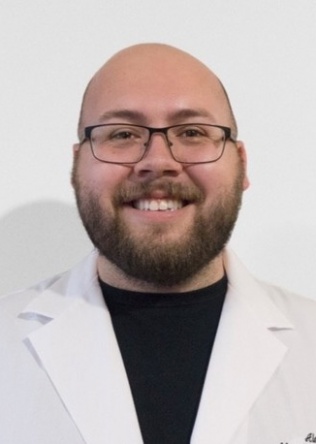Grahame Evans
Blythe Hospelhorn
Kaitlin "Katie" Williamson, MD
Katie completed her Doctor of Medicine, May 2015, from Baylor College of Medicine. Katie is a Pediatric Infectious Disease Fellow in the Department of Pediatrics at Vanderbilt University Medical Center. She is a Master's student funded by the NLM Training Grant.
John Shelley
John completed his Bachelor of Science, May 2016, from the University of Alabama at Birmingham. John is in the Medical Scientist Training Program (MSTP). He is pursuing a PhD funded by MSTP.
Megan Salwei, PhD
Megan Salwei, PhD, is an Assistant Professor in the Department of Anesthesiology within the Center for Research and Innovation in Systems Safety (CRISS). Dr. Salwei received her PhD in Industrial and Systems Engineering from the University of Wisconsin-Madison, and she completed the National Library of Medicine Postdoctoral Research Fellowship in Biomedical Informatics at Vanderbilt University, working with Matthew Weinger.
Using human factors engineering methods and principles, her research program focuses on the design and integration of information-rich technologies to support care processes and improve patient safety. She is interested in the design of HealthIT to support teamwork in healthcare, not just between clinicians, but between the entire healthcare team - clinicians, patients, and their family caregivers. She received a K01 award from AHRQ to design a team-based collaborative technology to improve personalized treatment decision making for breast cancer patients.
Megan received the Vanderbilt K12 Learning Health Systems award. Her K12 title is “COMputerized PAtient-centered Collaborative Technology (COMPACT) to support breast cancer shared decision making”. Info on her research and project can be found here: https://www.vumc.org/implementation/2018-lhs-scholars
Google Scholar: https://scholar.google.com/citations?user=zDQpT88AAAAJ&hl=en&oi=ao
Twitter: @megansalwei
Kevin "KJ" Krause
KJ completed his Bachelor of Science in Biomedical Engineering, June 2019, from the University of California (Davis). KJ is a PhD student funded by the NLM Training Grant.
Candace Crawford
Candace completed her Doctor of Pharmacy, May 2015, from Florida Agricultural and Mechanical University. Candace is a Master’s student funded by the VA Postdoctoral Fellowship.
Robert "Alex" Becker, MS
Robert "Alex" Becker, MS is a PhD candidate in biomedical informatics at Vanderbilt University, advised by Colin Walsh, MD; Jessica Ancker, PhD, MPH; and Tom Reese, PharmD, PhD. His research focuses on improving the detection of preventable adverse events in anticoagulation therapy and exploring patient and provider perspectives on a shared decision-making tool designed to manage these risks.
Alex earned a BS in Biomedical Engineering with a certificate in Computational Science from the University of Cincinnati in April 2020. As an undergraduate, he gained diverse, hands-on experience through research and industry roles at Cincinnati Children’s Hospital, Zimmer Biomet, and Regeneron Pharmaceuticals. He earned an MS in Biomedical Informatics from Vanderbilt in 2023.







